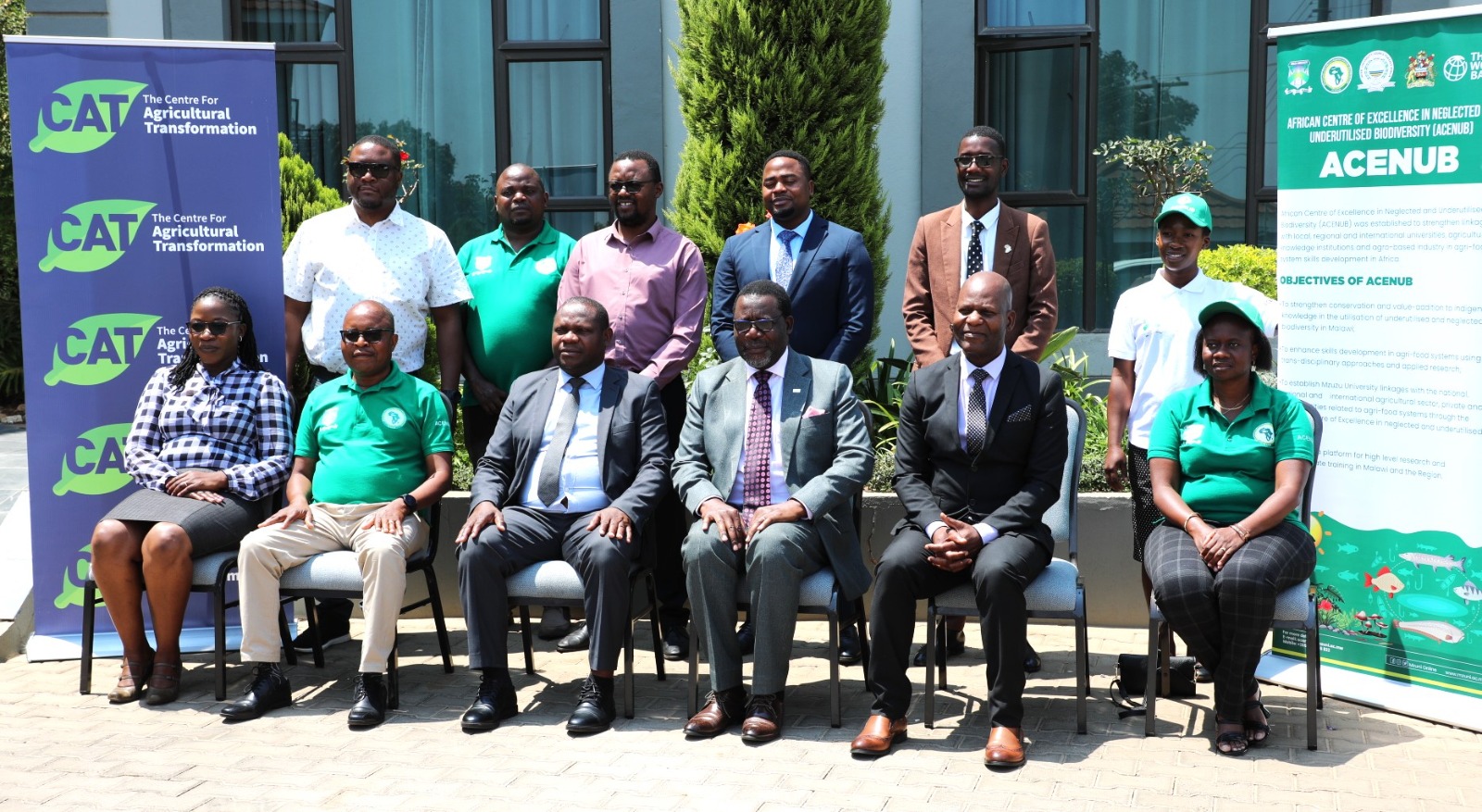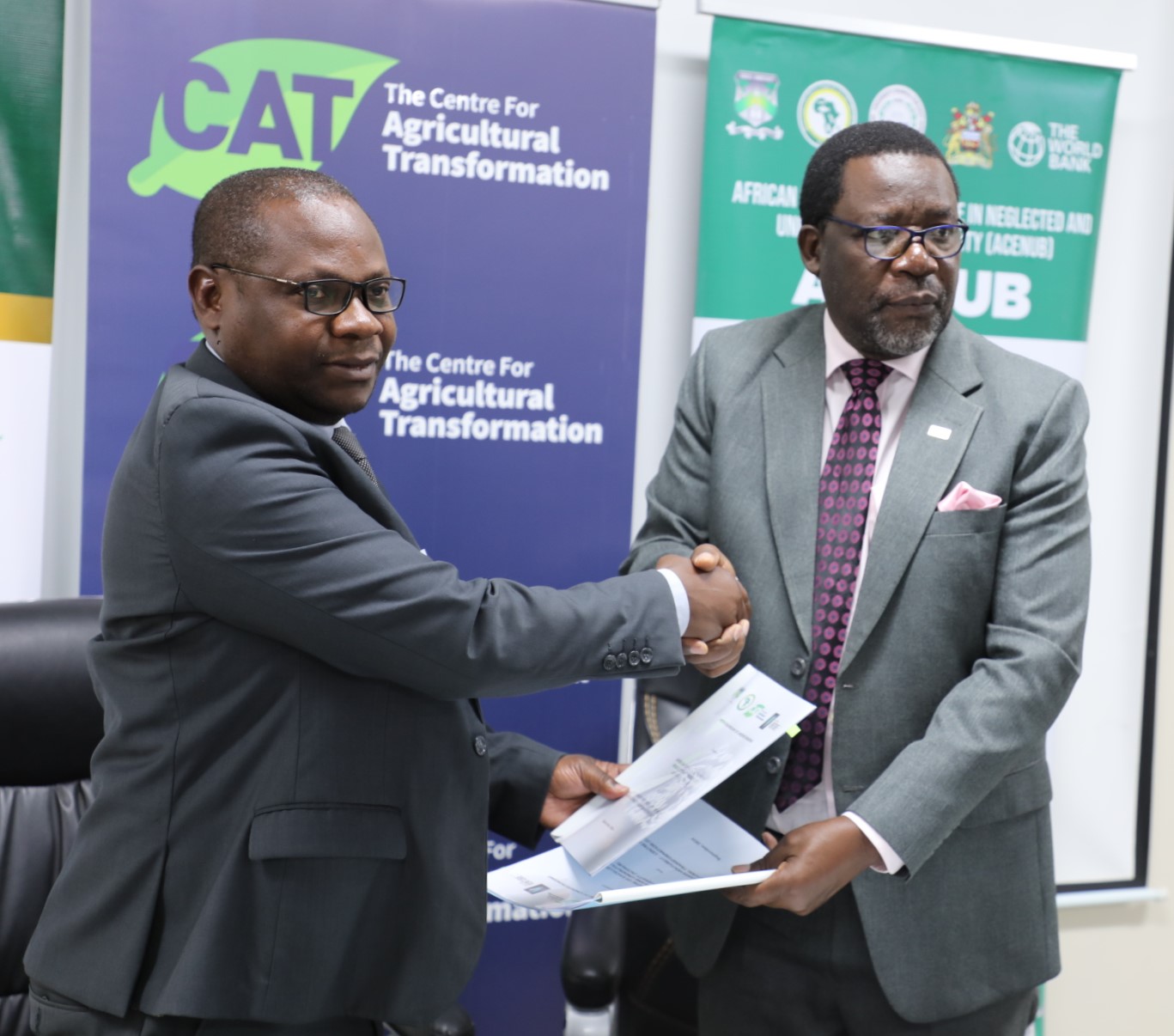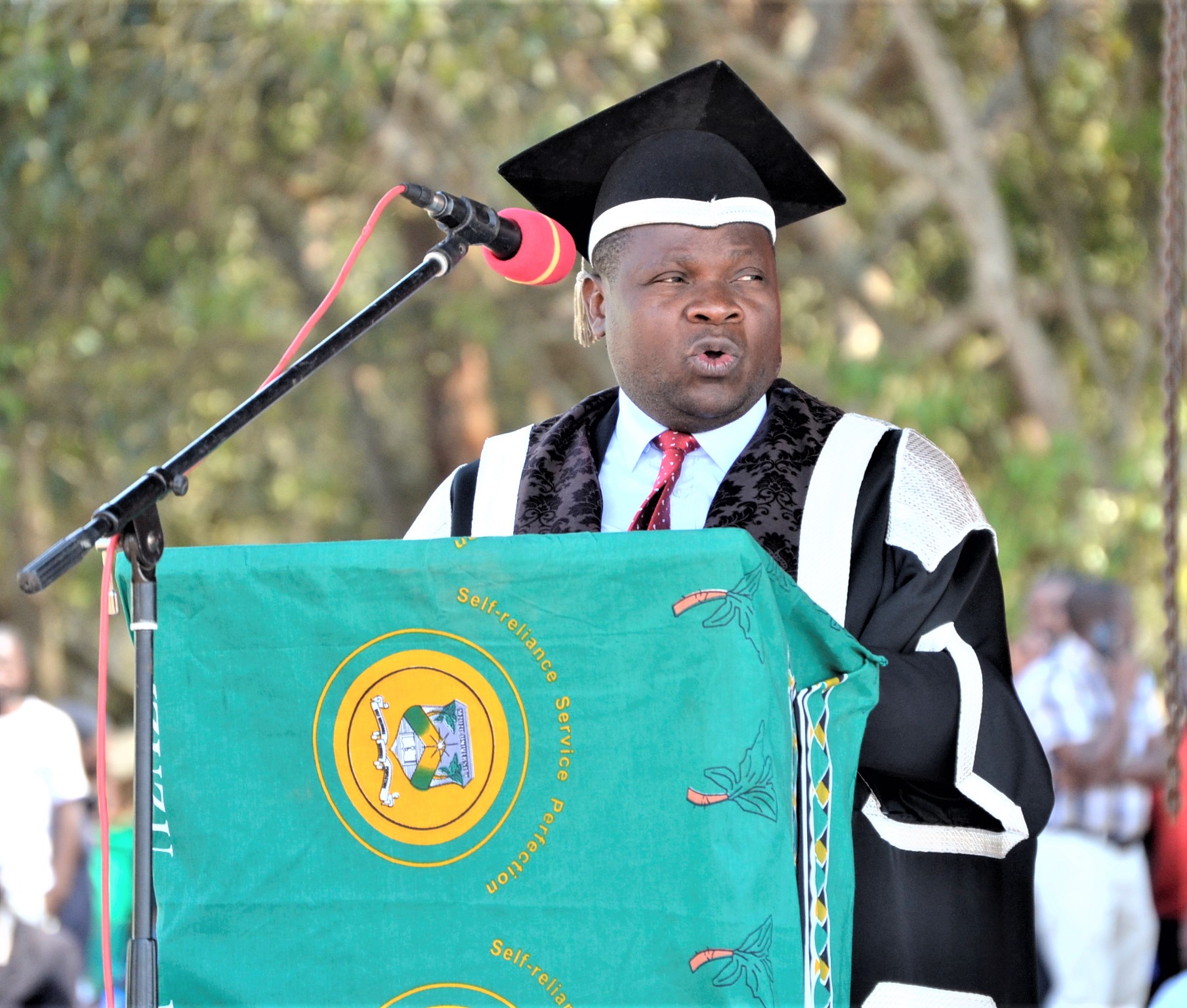
Mzuzu University (MZUNI) Vice-Chancellor, Professor Wales Singini, says the memorandum of understanding signed with the Centre for Agricultural Transformation (CAT) will strengthen the University’s focus on impactful research.
“There have been concerns about students not always acquiring knowledge that can truly transform communities, but I am pleased to see a positive shift in the institutions of higher learning. Mzuzu University is specifically prioritizing impactful research, and this partnership will serve as a platform for students to acquire valuable knowledge,” he said.
The University signed the MoU through the African Centre of Excellence in Neglected and Underutilised Biodiversity (ACENUB), which specializes in research aimed at revealing the high value of neglected and underutilised biodiversity.

CAT Executive Director Mcloud Nkhoma said CAT aims to promote the utilization of underutilized crops.
“The purpose of this MoU is to outline how the two partners will collaborate and contribute to increased agricultural productivity and incomes for smallholder farmers, collaborative research among staff, industrial attachment, industrial skill development, product development, marketing, and incubation,” he said.
The strategic objectives of the MoU are to enhance farmer incomes by diversifying smallholder farmers into new value chains and increasing their agricultural productivity. The agreement also aims at supporting economic development by fostering the economic success of Malawian farmers through sustainable agricultural practices.
CAT implements the Smart Farm Model to drive the adoption of agricultural innovations, new technologies, and critical management practices. Through its Market System Development component, it also facilitates financial and market access for smallholder farmers through trusted partners as off-takers.
Established in 2022, ACENUB serves as a platform for high-level research and postgraduate (including postdoctoral) training for Malawi and the region, focusing on high-level research and training in neglected and underutilised biodiversity to contribute to regional agri-food and nutrition systems.



